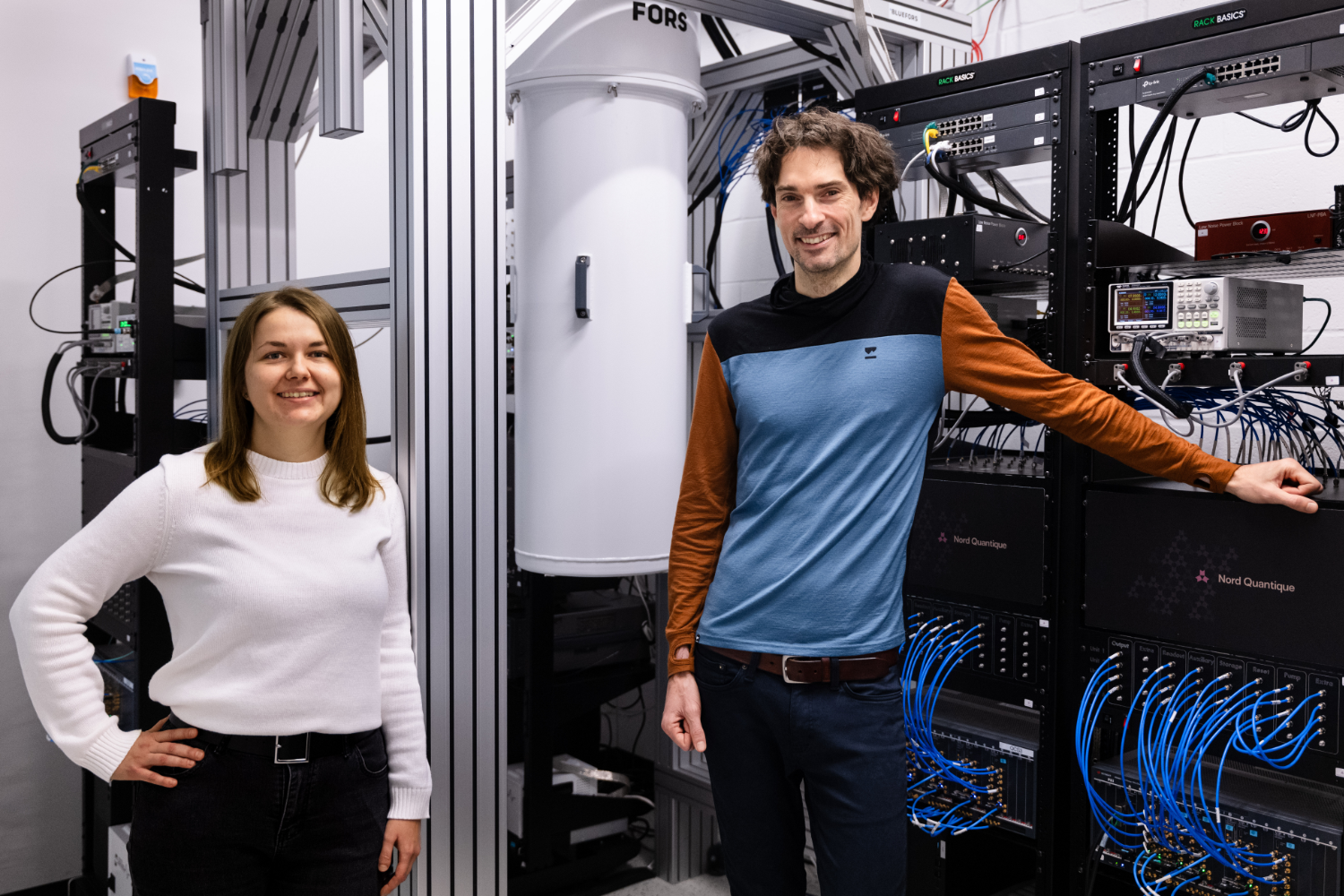Nord Quantique and AlgoLab Unite to Advance Fault-Tolerant Quantum Computing and Algorithm Development

Insider Brief:
- Nord Quantique and AlgoLab launched a year-long research project to combine bosonic code-based quantum hardware with advanced algorithms for optimization and quantum machine learning.
- Nord Quantique’s bosonic codes use the Hilbert space of quantum oscillators to achieve efficient error correction with fewer physical qubits, reducing hardware requirements compared to traditional methods.
- The project intends to design algorithms specifically tailored to Nord Quantique’s hardware, creating practical solutions for industrial applications while overcoming error correction challenges.
- Editor’s Note: The original source article was translated from French to English using ChatGPT.
- Image Credit: Martin Blache
PRESS RELEASE — In a recent release, Nord Quantique and AlgoLab announced a collaborative research project dedicated to bridging advanced quantum hardware with the quantum algorithms. The project, set to span twelve months, combines the strengths of Nord Quantique’s bosonic code-based architecture with AlgoLab’s expertise in algorithm development, particularly in optimization and quantum machine learning.
Redefining Fault Tolerance with Bosonic Codes
Nord Quantique’s approach to fault tolerance is through bosonic codes, which reduce hardware requirements compared to traditional qubit-based systems. According to the release, bosonic codes exploit the expansive Hilbert space of quantum oscillators which allows for efficient error correction with fewer physical qubits. This in turn allows Nord Quantique’s systems to achieve error correction thresholds with a fraction of the resources needed by conventional systems.
The foundation of this approach, as detailed in a recently published paper on arXiv, lies in grid state encodings, a type of bosonic code. Bosonic codes can use the large Hilbert space of quantum oscillators—essentially, the many energy levels available within a single quantum system—to encode quantum information. This contrasts with traditional methods that rely on large arrays of physical qubits to redundantly encode and protect information. By using grid states, which are quantum states defined by specific geometric structures in phase space, Nord Quantique’s architecture achieves error correction at the level of a single quantum oscillator.
This architecture’s reliance on bosonic modes, rather than interconnected arrays of qubits, circumvents the hardware and engineering challenges of scaling up traditional quantum systems. Instead of requiring a massive network of individual components, a bosonic quantum processor can potentially achieve fault tolerance through a single, carefully engineered physical system. As described in the paper, this approach not only simplifies the system but may also lead to scalable and efficient quantum computing at MHz clock speeds, a notable metric for practical implementations.
Bridging Together Hardware Innovation and Algorithmic Precision
Anastasiia Pusenkova, Applications Team Lead at Nord Quantique, highlighted the strategic vision behind the partnership: “My team’s role is to connect the unique capabilities of our quantum hardware to algorithmic efforts. Together with AlgoLab, we aim to design practical solutions that fully exploit the potential of our architecture.”
AlgoLab complements this vision by developing algorithms tailored to the characteristics of Nord Quantique’s hardware. As Maxime Dion, quantum computing developer at AlgoLab, noted, “This partnership allows us to explore how a fault-tolerant architecture, such as the one developed by Nord Quantique, can transform complex algorithms into practical solutions for industry. The material efficiency of Nord Quantique’s hardware is particularly promising for addressing error correction challenges.”
This project not only demonstrates the potential synergy between quantum hardware and software specifically, but also serves as a model for how interdisciplinary collaborations can further developments in quantum computing.
Contributing authors on the study include Marc-Antoine Lemonde, Dany Lachance-Quirion, Guillaume Duclos-Cianci, Nicholas E. Frattini, Florian Hopfmueller, Chloe Gauvin-Ndiaye, Julien Camirand-Lemyre, and Philippe St-Jean.
